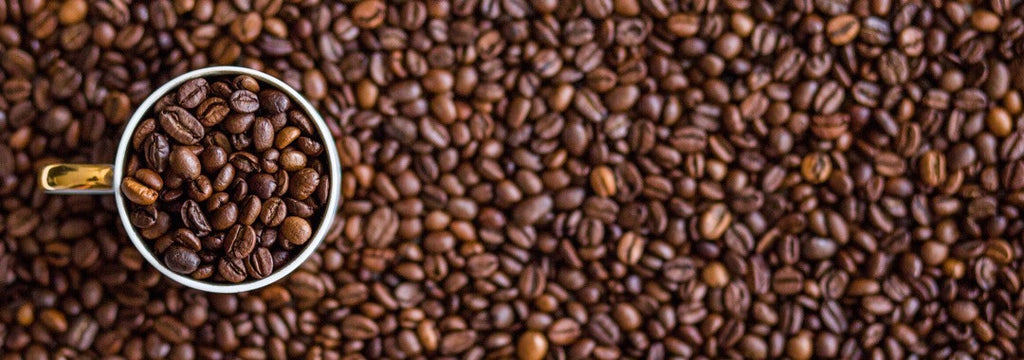
We all know coffee in its purest form is 100% gluten-free, so then why do so many people report experiencing adverse reactions after drinking it? We looked into this common occurrence and found three main reasons why this could be happening. (Plus, check out the end of the article for three of our favorite gluten-free coffees.)
First Things First: Coffee is Indeed Gluten-Free.
(But That's the Short Answer.)
Coffee beans are gluten-free. So what's all the fuss about? When investigating why coffee is so commonly named as a culprit in gastrointestinal discomfort for celiacs, we came across three main factors: cross-contamination, additional ingredients, and a little something called gluten cross-reactivity.
1. Coffee and Cross-Contamination
Cross-contamination can be a huge problem with coffee. To start, coffee beans can be processed in a shared facility or on equipment that also processes gluten-containing ingredients. The good news is that coffee processing plants rarely process other items containing gluten, so buying packaged coffee is less of an issue. The main culprit in gluten cross-contamination of coffee happens when you order in a coffee shop.
While it may be surprising that cross-contamination can happen at a place that only prepares drinks, coffee shops are potential hazards, as some of the ingredients in fancy specialty drinks (as well as in teas) contain gluten. Unfortunately, coffee shops traditionally give their equipment a quick rinse between drinks, as opposed to a thorough wash. This leaves the door wide open for cross-contamination to occur.
While plenty of people with celiac and gluten-intolerance have reported not being at all affected by flavored coffees, large chain coffee shops continually refuse to take the extra steps necessary to insure gluten-free coffee drinks. Until they do this, we will continue to advise you to proceed with caution and stick to simple brewed coffees without added flavors and syrups.
2. Additional Ingredients Hiding in Coffee
While gluten is clearly the first culprit to consider when experiencing discomfort, there are a few other possibilities that may be lurking in your coffee.
Coffee can be pretty hard on your digestive system, mostly due to the high levels of caffeine. Caffeine, a known gastric irritant, can especially cause discomfort in those who are dealing with intestinal damage, as many people with celiac are. In addition to caffeine, things like milk, creamers, and sugar could be what's causing your pain.
There is also the possibility that the flavoring in your coffee contains gluten. While standard flavored coffee purchased at the grocery store is very unlikely to contain gluten, specialty flavored drinks at your local coffee shop are another story. Places like Starbucks, for example, use ingredients such as java chips and sprinkles in some of their specialty coffees, which contain gluten. It is always good to double check regarding the status of syrups and flavors, but most coffee shops (Starbucks included) have not released detailed ingredient lists of flavor syrups, making them off limits to the celiac community.
3. Coffee is a Potential Gluten Cross-Reactor
Some recent research has uncovered that there may be foods that, while gluten-free, trick the body into producing the same symptoms that gluten does. Foods such as coffee, potatoes, corn, chocolate, and dairy can all potentially cause cross-reactivity, as we discussed in a recent CeliAct blog.
The problem with this hypothesis is that it currently is supported by very minimal research. It may simply be that people who react poorly to gluten also react poorly to other common allergens. Additionally, it can take a while after a celiac diagnosis to begin feeling well again, meaning that pain and discomfort may stick around for some time even after you've completely eliminated gluten from your diet. While this can make you think there must be other ingredients causing your ailments, it is simply a result of your body taking time to heal. More research on gluten cross-reactivity is clearly needed.
Where Can I Find Gluten-Free Coffee?
The best steps you can take to avoid gluten sneaking into your coffee is to purchase whole bean, unflavored coffee and to brew your beverages at home. Some of our favorite whole bean coffees are Brewing Good Coffee Company, Blackbeard's Revenge, and Eight O'Clock Whole Bean Coffee.
As we mentioned above, pay close attention to flavorings, to additions to your coffee, and to the caffeine factor (switch to decaf if that ends up being the issue). If you are careful and pay close attention to your body, there's no reason why you shouldn't be able to enjoy a warm cup of joe.



Leave a comment